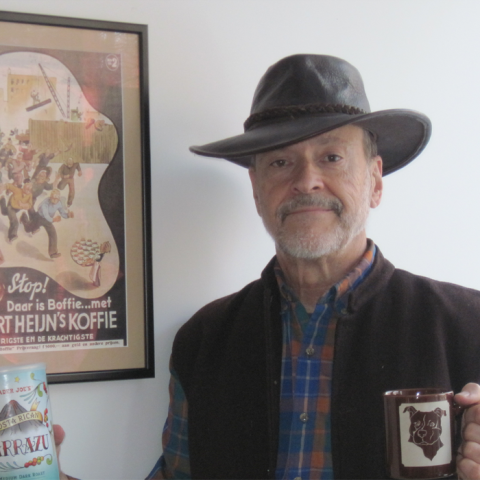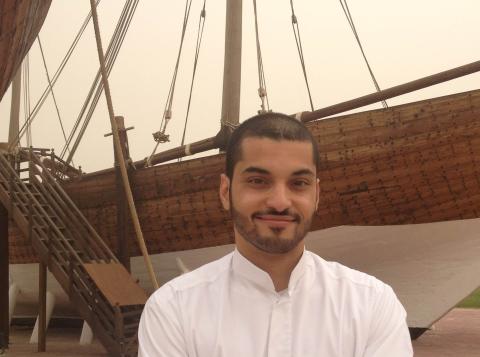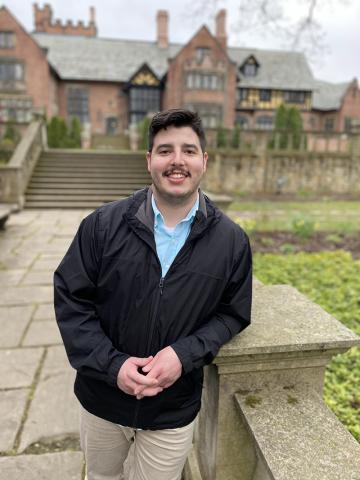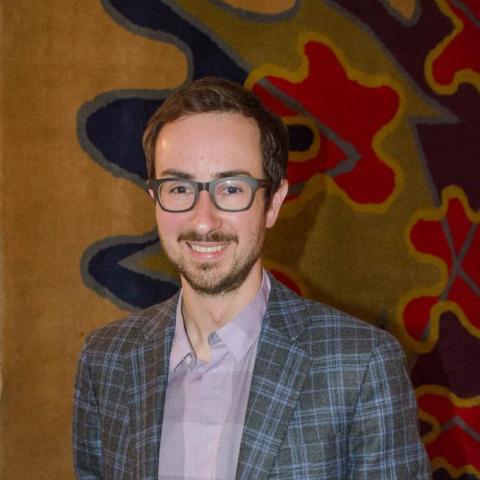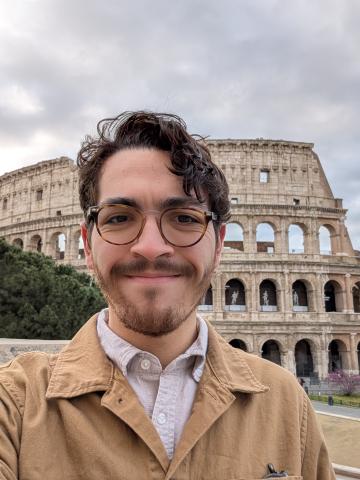- About
- People
- Graduate
- Undergraduate
-
Research
- Publications
- Geographic Area
- Time Period
-
Themes
- Cultural & Social History
- Digital Humanities
- Economic History & History of Capitalism
- Empires & Colonialism
- Environmental History
- Genocide & Mass Violence
- History of Slavery
- Intellectual History & History of Ideas
- Jewish History
- Labor History
- Legal History
- Material Culture
- Military & War History
- Political History
- Race & Ethnicity
- Religious History
- Science, Medicine, & Technology
- Spatial History, Frontiers, & Migration
- Transnational & Diplomatic History
- Women, Gender, & Sexuality
- Courses
Transnational & Diplomatic History
Historians at the University of Virginia working in transnational and diplomatic history examine subjects that cross borders and transcend a purely national historical context. For example, some of us study imperialism and colonization, economic and financial arrangements among states and non-state actors, diplomacy and statecraft, comparative ideologies, human rights, the cultural dimensions of international relations, war and its impact upon society, migration and refugees, genocide, epidemics and public health, cross-border movements of ideas, goods, and people, and the place of non-governmental organizations in the modern world.
Our Ph.D. students in these fields normally develop competence in at least three historiographical areas, such as modern U.S., Latin American, Middle Eastern, East Asian, and European history. Their work is supplemented by readings in such international fields as the Cold War, war and society in the 20th century, human rights in the modern age, capitalism, comparative empires, the United States in the world, and globalization in history. The possibilities for combining national and international fields are almost limitless.
The study of transnational and diplomatic history at the University of Virginia is conducted in coordination with such active research centers as the Center for Global Inquiry and Innovation, the Miller Center (which offers pre-doctoral fellowships for the study of modern politics and foreign affairs), the Center for Global Health, the Center for Russian and East European Studies, the Center for South Asian Studies, the East Asia Center, the Middle East Studies Program, and the German Studies Center, among others.
Manuela Achilles Professor of German and History; Director of the Center for German StudiesView ProfileRichard Barnett Associate Professor EmeritusView ProfileFahad Ahmad Bishara Associate Professor, Indian Ocean History; Rouhollah Ramazani Associate Professor of Arabian Peninsula and Gulf StudiesView ProfileHao Chen Graduate StudentView ProfileSean Cronan Assistant ProfessorView ProfileSophia DeLeon View Profile Christa Dierksheide Brockman Foundation Jefferson Scholars Foundation Professor of History; Director, Center for the Study of the Age of JeffersonView ProfileAmy Fedeski View Profile Matthew Frakes View Profile Ethan Gonzales PhD Candidate (ABD)View ProfileChris Gratien Associate Professor; Director of Graduate StudiesView ProfilePaul D. Halliday Julian Bishko Professor of History; Professor of LawView ProfileCharles Heffernan-Brown Graduate StudentView ProfileWilliam Hitchcock James Madison Professor of History; Director, Governing America in a Global Era (GAGE)View ProfilePaul Kershaw Associate ProfessorView ProfileKyrill Kunakhovich Associate ProfessorView ProfileJ. E. Lendon William W. Corcoran Professor of HistoryView ProfileXiaoyuan Liu David Dean 21st Century Professor of Asian Studies & Professor of HistoryView ProfileChristian W. McMillen ProfessorView ProfileNeeti Nair Professor of HistoryView ProfileEmily Needham Graduate StudentView ProfileAndrew Preston W.L. Lyons Brown Jr. Jefferson Scholars Foundation Distinguished Professor of Diplomacy and StatecraftView ProfileEvan Richardson Graduate StudentView ProfileAudrius Rickus Graduate StudentView ProfileKubra Sagir Graduate StudentView ProfileJoseph Seeley Associate ProfessorView ProfileJennifer Sessions Associate Professor of History; Director of Undergraduate Programs in History; Affiliated Faculty, Department of FrenchView ProfileShelby Sinclair Assistant ProfessorView ProfileRyan Singsank Graduate StudentView ProfileLean Sweeney Associate Professor, General FacultyView ProfilePenny Von Eschen William R Kenan, Jr, Professor of History and American StudiesView ProfileZejun Wang Graduate StudentView ProfileBrittany White PhD CandidateView ProfileJustin Winokur Graduate StudentView ProfileEmily Woolner Graduate StudentView ProfilePhilip Zelikow White Burkett Miller Professor, EmeritusView Profile

